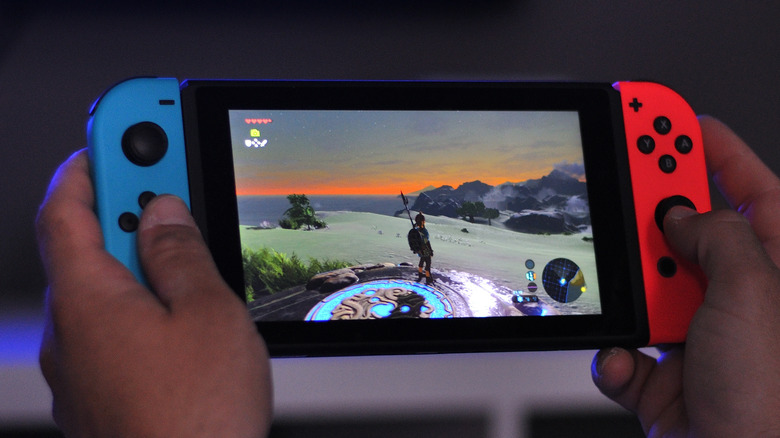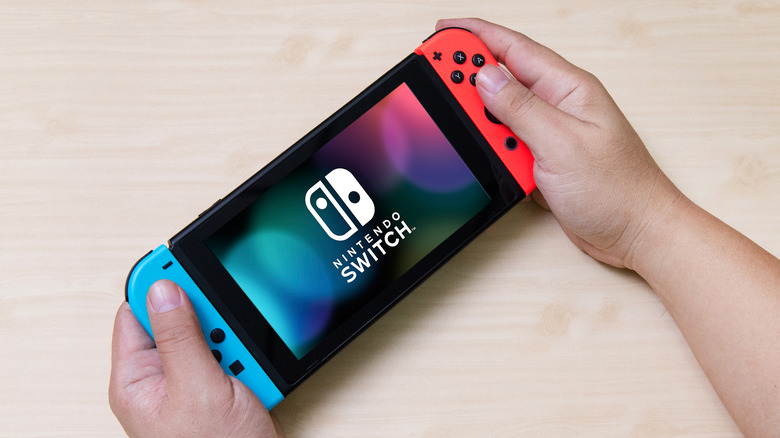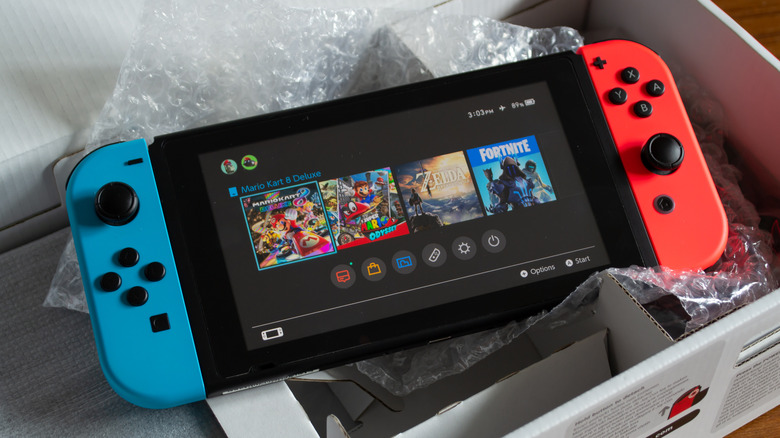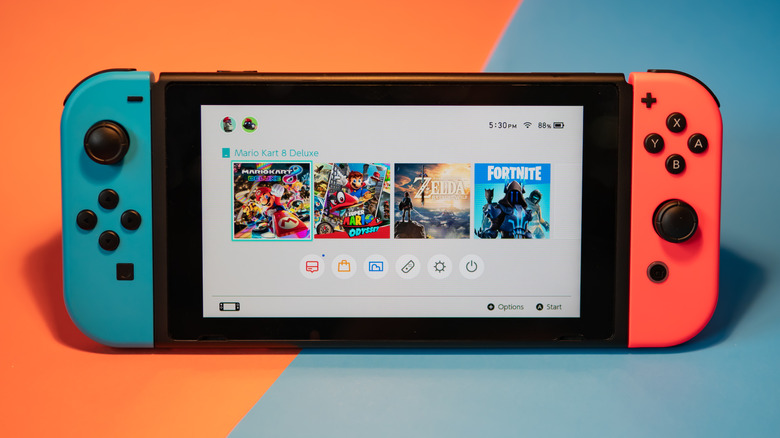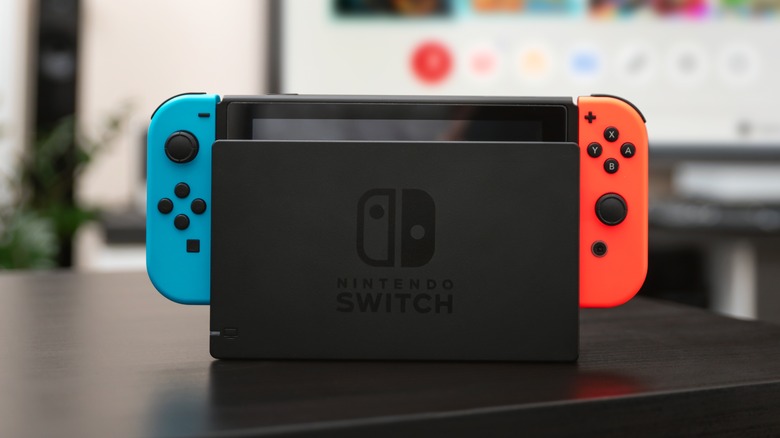Why You Should Think Twice Before Jailbreaking The Nintendo Switch
Few thrills can match jailbreaking your devices, which gives you deep access to levels of your system that the original hardware maker never intended you to have. You may have heard this term apply to smartphones and gaming consoles. Jailbreaking can allow users to install custom firmware on a device, giving them access to features and functions not typically available. For instance, a jailbroken iPhone lets you install apps from sources outside of the app store and customize iOS with more liberty than the official version allows.
For gaming consoles like the Nintendo Switch, you can often back up your games and play them from external media, such as discs and SD cards. You might also be able to alter the features and functionality in the games you play, including cheats and mods that weren't originally baked into the game. A jailbroken console also gives way to cool apps like emulators and media players that otherwise wouldn't be available. These apps are often referred to as "homebrew."
While this might sound tempting for those looking to maximize their gaming experience, it's essential to understand the dangers of such modifications and the pitfalls that could ruin your weekend and your wallet.
You could brick your Nintendo Switch
One of the most significant risks of jailbreaking a Nintendo Switch is the possibility of rendering your console inoperable or "bricked." A bricked console becomes entirely non-functional, leaving you with a device that essentially becomes an expensive paperweight. You can also think of it as tuition on a lesson of what not to do with your next one.
This can occur when you incorrectly install custom firmware or make unauthorized system-level modifications that inflict irreversible damage on the console's hardware or software. If you've soft-bricked the console, you may be able to restore the original software and start anew if you mess something up, but in many cases, there's little hope of restoring functionality to a fully bricked console.
And if you've ventured beyond the hardware and software boundaries set by Nintendo, you can be assured that your warranty is no longer valid. You won't even be able to pay Nintendo to fix it. If your console is rendered unusable, purchasing a new Switch console may be the only viable solution.
Nintendo can ban your account (or the Switch itself) if you're caught
Did you know that jailbreaking your Nintendo Switch violates the company's Terms of Service? Consequently, Nintendo has the right to take appropriate action against users who do so, including banning the user's account or the hardware.
If your account is banned, you lose access to all digital purchases made on the account and any game progress associated with it. Creating a new account would require starting from scratch, repurchasing any previously owned content, and potentially losing any saved game data. This can be a significant drawback for users who have spent time and money building their game library and progress.
Additionally, Nintendo may choose to ban the console itself in some cases. This means that even if you restore the Switch's original firmware and create a new account, online services and features may still be limited or restricted. In the end, this can be a costly mistake.
You might encounter more bugs and glitches
The primary objective of a gaming console is to provide entertainment and enjoyment, but problematic software can quickly turn your leisure time into a frustrating fight. While custom firmware can offer additional features and options for your Nintendo Switch, it may be less stable and more prone to issues than the official software, ultimately defeating the purpose of enhancing your gaming experience.
This instability can result in irritating glitches, crashes, and other software-related issues that negatively affect your gaming experience and the handheld's overall performance. You'll only exacerbate these issues by tinkering with settings and functions you don't understand. If you know these risks and don't mind putting up with the headache, this is the most minor consideration on your radar. But if you're not particularly tech-savvy and don't have the patience for constant troubleshooting, you'll definitely want to avoid jailbreaking your Switch.
You open yourself up to security vulnerabilities
By choosing to jailbreak your Nintendo Switch, you are intentionally deciding to target its security holes. Jailbreaking relies on exploiting vulnerabilities in the console's software. Custom firmware uses these exploits to bypass system restrictions set by Nintendo, so you're making a potential hacker's life easier by making your device more susceptible to threats.
Additionally, while some "homebrew" apps aim to add to your experience, you could download apps that pose as helpful enhancements but hide malicious code if you're not careful. Downloading and installing untrustworthy software can compromise your console. Thankfully, the Nintendo Switch doesn't have privacy-sensitive hardware features like a camera or internal microphone, so there's no way for an attacker to eavesdrop on your conversations as they could on a Nintendo 3DS. But some exploits on previous Nintendo consoles could allow them to hijack your data and expose personal information to cybercriminals.
Buying a new Nintendo Switch because you've bricked yours or because Nintendo banned you is minor compared to the damage that can be wreaked on your personal life and finances should a bad-faith actor take control of your system. Unless you know exactly what you're installing and the risks involved, this is reason alone to abide in the comfort of protection Nintendo offers.
